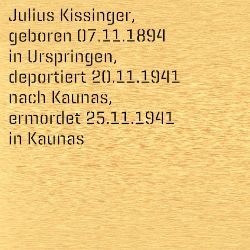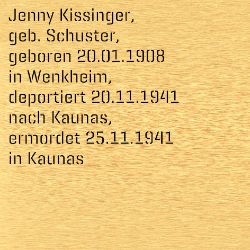Rosa Falk was what they used to call a “good catch.” She and her six siblings owned a three-story apartment building on Bürkleinstraße 16 (today 20). In 1904 she married Emanuel Kocherthaler, a merchant. The couple moved into a third story apartment in Bürkleinstraße 16. Their daughter, Alice, was born on July 8, 1905. In 1916 Rosa Kocherthaler’s sister, Ida Silber, and her family moved in with them. After the “Kristallnacht” pogroms of November 9, 1938 the Kocherthaler family was subjected to increasingly repressive measures. In keeping with the “decree of the usage of Jewish assets” enacted on December 3, 1938, they and all German Jews had to turn over their valuables to the Städtisches Leihamt (municipal loan office). It was not until 1940 that they were paid 147 Reichsmark for their property, the silverware and some jewelry. The proceeds were placed together with their rental fees in a security account to which they had no access. In 1939, Bürkleinstraße 16 was turned into a “Jew house,” where Jews were forced to resettle. It wasn’t long before more than 72 men, women and children had moved into this cramped space. Alice Kocherthaler managed to emigrate to England in June 1939, and from there to the USA. On January 20, 1942 the Nazis expelled Rosa and Emanuel Kocherthaler from their apartment in Bürkleinstraße, where they had lived for almost four decades and raised their daughter. They were sent to a Jewish community dormitory on Wagnerstraße 3. On June 4, 1942 the Gestapo (Secret Police) deported them both in Transport II/2 to Theresienstadt concentration camp. Rosa and Emanuel Kocherthaler were transferred to the “home for the elderly” in the “Kavalierkaserne” – damp, dark and utterly overcrowded barracks: one of the worst locations in the Theresienstadt camp. Emanuel Kocherthaler died on February 4, 1943. Rosa Kocherthaler succumbed to the catastrophic conditions in the camp; she died on April 6, 1943. (text Felicia Englmann, editor C. Fritsche, translation T. Axelrod)





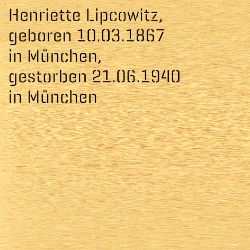

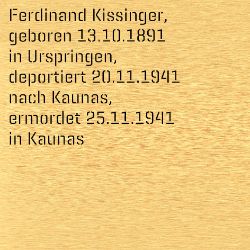
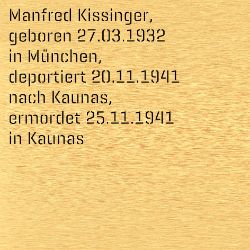
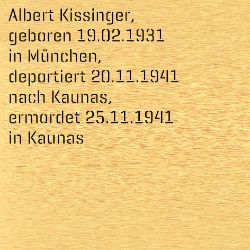
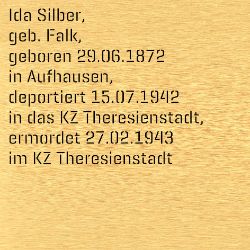
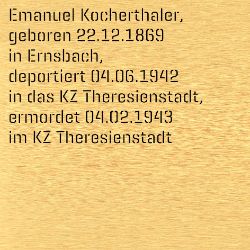
-Silber_image.jpg/jcr:content/EZ_BILD_14811.jpg)
